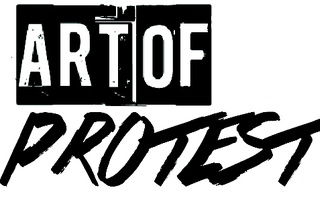President of Rwanda Paul Kagame fielded questions from students at the Institute of Politics on Friday regarding censorship of the press, balancing democracy and progress, and his decision to run for an unprecedented third term following a constitutional referendum.
The president spoke in front of a packed forum with police and secret service guarding all entrances to the John F. Kennedy, Jr. Forum as protesters gathered outside of the building. After delivering a short speech, Kagame answered questions from the audience that called his style of leadership into question.{shortcode-0e05508154b63d1453e06c1741a08217190070de}
“He was pretty real,” said Avika Dua ’17, “He wasn't censoring himself too much.”
Kagame has been credited for leading Rwanda’s transition from a dark, post-genocide period in its history to one of increased prosperity. However, he has also been criticized for censoring media outlets in the country, including the BBC, and has faced allegations that he has ordered attacks on political opponents. After Rwandans voted to approve a change to the constitution, lifting the restrictions that prevented Kagame from running for a third term, Kagame announced he would run again for office in 2017.
Kagame addressed these criticisms as in part originating from Western democracies whose constituents may not completely understand Rwanda’s situation.
“Deep down, we are still thought to be incapable of anything better than mimicry,” he said. “How else can you understand the experience, which I have often had, of being presented with the names of potential successors, and demanded to pick one among them, something which I have neither the desire, the power, nor the right to do.”
One student, Jack H. Stone ’19, agreed with Kagame, saying “we can’t judge leaders through a Western lens all the time... just because in the United States it would be bad for him to crack down on the press or muzzle dissent.”
“He rebuilt Rwanda completely, economically and politically, after the genocide,” Stone added.
In choosing to run for a third term, which would allow him to stay in power until at least 2024, Kagame said he was following the will of the people.
“The fact is, the process to arrive at that point [of having a new leader chosen] is being decided by people other than myself,” Kagame said. “Come help me convince [Rwandan citizens] that they don’t need me….When they don’t need me, I will just go home and sit and relax, absolutely.”
Kagame also spoke about his country's censorship of some media, including a ban on BBC broadcasts in the Kinyarwanda language, saying it is not of great importance to the Rwandan people.
“Rwandans—what they feel, the choices they make, whatever they want to do, they will do, irrespective of what the BBC says,” Kagame said.
—Staff writer Nathaniel J. Hiatt can be reached at nathaniel.hiatt@thecrimson.com. Follow him on Twitter @nathaniel_hiatt.
Read more in News
2016 Women’s Week Kicks OffRecommended Articles
-
Why We Need a War Crimes AmbassadorA bout two dozen of us stood with unlit candles, gathered in front of Memorial Church to remember the swiftest
-
BBC Honors WHRB's ProgrammingHarvard's own WHRB 95.3 FM will be featured this fall on a British Broadcasting Corp. (BBC) radio program showcasing five
-
Rwandan Students Commemorate Genocide VictimsEvery April, Rwandan students peform the cathartic ritual of commemorating the victims of the Rwandan genocide, bringing to life the memories of those who were affected by the tragedy in 1994.
-
EdX Partners with Facebook to Provide Open Online Education to RwandaEdX, the open online learning platform co-founded by Harvard and MIT, has partnered with Facebook to give Rwandan students free access to collaborative, online courses. The partnership, dubbed SocialEDU, was announced Monday and will serve as a blueprint for future projects, according to a press release from Facebook.
-
 Yes Men Bhopal Legacy
Yes Men Bhopal Legacy













